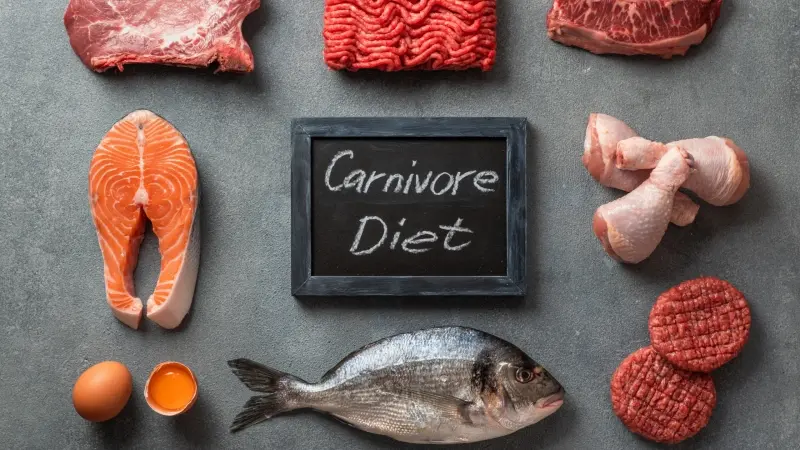The Carnivore diet is an unconventional approach to eating that revolves around consuming animal products exclusively, while eliminating all plant-based foods. It is important to note that this dietary plan is highly restrictive and may not be suitable for everyone.
However, for individuals who choose to follow a Carnivore diet, careful meal planning is crucial to ensure proper nutrition and to meet their dietary needs. In this article, we will provide a sample Carnivore diet meal plan to help you navigate this unique way of eating.
Before diving into the meal plan, it’s important to consider a few key principles of the Carnivore diet:
- Focus on Animal Products: Animal products should form the basis of your meals. This includes various types of meat, fish, poultry, eggs, and animal fats.
- Variety of Animal Sources: Incorporate a variety of animal sources to ensure a diverse nutrient intake. This can include beef, pork, lamb, chicken, turkey, fish, shellfish, and organ meats.
- Include Fatty Cuts of Meat: Animal fats are an essential part of the Carnivore diet. Opt for fattier cuts of meat to provide sufficient energy and satiety.
- Adequate Hydration: Hydration is important on any diet, including the Carnivore diet. Drink plenty of water throughout the day to maintain proper hydration.
Now, let’s explore a sample Carnivore diet meal plan:
Breakfast:
- Ribeye steak cooked to your preference, seasoned with salt and pepper.
- Bacon strips or sausage links (choose sugar-free varieties).
- Optional: Add a couple of fried eggs or incorporate butter for added flavor and richness.
Lunch:
- Grilled or pan-fried chicken thighs with the skin on.
- Salmon fillet baked with lemon and dill.
- A side of bone broth for added nutrients and hydration.
Snack:
- Beef jerky or biltong (dried meat).
- Hard-boiled eggs.
- Optional: Incorporate canned sardines or smoked oysters for a convenient and nutrient-dense snack.
Dinner:
- Grilled ribeye steak or lamb chops.
- Roasted chicken drumsticks with crispy skin.
- A side of bone marrow or liver pâté for added nutrient variety.
Dessert (optional):
- Full-fat Greek yogurt (if dairy is tolerated) or coconut cream for a creamy, satisfying treat.
- Optional: Top with a sprinkle of unsweetened cocoa powder or sliced almonds.
It is important to note that portion sizes and specific dietary requirements may vary from person to person. Adjust the serving sizes according to your individual needs and consult with a healthcare professional or registered dietitian for personalized guidance.
Additional Considerations
- Salt and Seasonings: While the Carnivore diet focuses primarily on animal products, you can use salt and other seasonings to enhance the flavor of your meals. However, be mindful of any potential additives in commercially prepared seasonings.
- Hydration: Adequate hydration is crucial. Drink water throughout the day to maintain proper hydration levels. Consider incorporating electrolytes if necessary, especially if you engage in intense physical activity.
- Supplementation: Since the Carnivore diet eliminates plant-based foods, there may be a need for certain nutrient supplementation. Consult with a healthcare professional or registered dietitian to determine if any supplementation is necessary based on your individual needs.
- Individual Preferences and Variations: The Carnivore diet allows for flexibility within the realm of animal-based foods. Choose the types of meats, cuts, and cooking methods that suit your preferences and dietary restrictions. Additionally, consider incorporating organ meats for a wider range of nutrients.
Conclusion
Following a Carnivore diet meal plan involves an exclusive focus on animal-based foods while eliminating plant-based foods. This highly restrictive approach requires careful meal planning to ensure adequate nutrition and to meet individual dietary needs. It is important to consult with a healthcare professional or registered dietitian before starting the Carnivore diet to ensure it aligns with your specific health goals and considerations.











